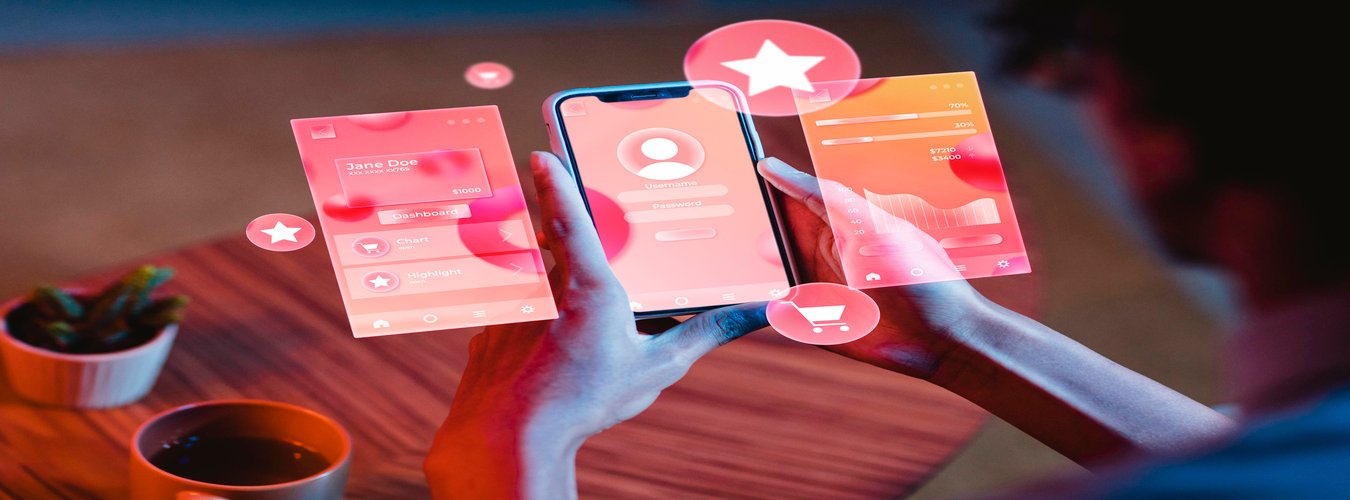Mobile App Trends in 2024: What to Expect
The mobile app industry is advancing at a rapid pace. From innovations in AI to the integration of AR/VR, app development trends in 2024 are shaping a future where functionality, security, and user experience (UX) are paramount. Here’s a look at the latest trends that Moz Web Media LLC highlights for the year ahead.
1. AI and Machine Learning Integration
Artificial intelligence (AI) and machine learning (ML) have been making waves in the tech industry for years, but 2024 will see an even deeper integration into mobile apps. AI-powered features such as predictive analytics, image recognition, and natural language processing (NLP) are enhancing personalization and automation.
For example, apps now predict user needs, offer tailored content, and even anticipate potential errors, enhancing the UX significantly. With the ability to analyze user data and deliver relevant information, apps like fitness trackers, financial planning tools, and shopping platforms are providing more value than ever before.
2. Augmented Reality (AR) and Virtual Reality (VR)
With the evolution of AR and VR, mobile app experiences are becoming immersive, particularly in industries like retail, real estate, and entertainment. For example, apps allow users to visualize products in their homes before purchasing or take virtual tours of properties. This enhances interactivity and helps companies differentiate their offerings.
The trend is particularly promising for industries such as gaming, fashion, and education, where users benefit from engaging and hands-on experiences.
3. 5G Rollout and Enhanced Connectivity
The adoption of 5G technology is enabling faster download and upload speeds, reduced latency, and better connectivity, which is particularly beneficial for apps that rely on real-time data processing, such as augmented reality, IoT (Internet of Things) applications, and HD streaming.
With 5G, developers can offer high-resolution video, virtual reality content, and enhanced live-streaming services, enhancing the app’s functionality and speed, which directly benefits UX.
4. Wearable App Integration
As wearable technology gains popularity, more apps are now designed to integrate seamlessly with devices like smartwatches and fitness trackers. These integrations mean more data-sharing capabilities and personalized user experiences. Health apps, for example, can monitor real-time vitals and provide insights directly on the wrist, encouraging users to be more engaged.
With apps now bridging the gap between wearables and smartphones, it’s expected that industries like healthcare, fitness, and even fashion will see significant advancements.
5. Privacy and Data Security
Increased concerns over data security are encouraging businesses to prioritize privacy in app design. From data encryption to secure cloud storage, app developers must incorporate stricter security measures to prevent data breaches. Compliance with data privacy laws, such as GDPR and CCPA, has become essential.
A growing trend includes providing users with transparency around data collection and usage, giving them more control over their information. Enhanced security protocols such as two-factor authentication (2FA) and biometric logins are becoming standard features.
6. Instant Apps
Instant apps offer users access to a limited version of the app without requiring a full download. This functionality is ideal for those looking to test apps without committing to storage space, offering a trial experience and improving accessibility.
With instant apps, users experience less friction, which is a win for businesses looking to increase user adoption rates. This approach is particularly popular in gaming and retail, where users can try out games or preview shopping apps before downloading the full version.
7. Super Apps
Super apps are platforms that combine several functionalities into one, offering a one-stop solution for users. These all-in-one apps integrate services such as shopping, messaging, and even payments, similar to WeChat or Grab.
The benefit of super apps lies in their convenience, as they save users from needing multiple apps for different purposes. The rise of super apps will likely impact industries like fintech, e-commerce, and social media.
8. Voice Technology and Chatbots
Voice commands and chatbots powered by AI are reshaping how users interact with mobile apps. Voice-activated searches, for example, enhance accessibility, and are particularly beneficial for those with disabilities.
Chatbots embedded in apps provide real-time assistance, enabling seamless customer support. Whether users need help navigating the app or completing a transaction, voice and chat functionality simplifies the UX and boosts engagement.
9. Blockchain and Decentralized Apps (DApps)
The use of blockchain technology and decentralized apps (DApps) is gaining traction, especially in sectors that rely on data security and transparency, such as finance, healthcare, and supply chain management. Blockchain allows for secure data transfer, making it ideal for transaction-heavy apps.
DApps are becoming popular, offering more control to users by removing the need for centralized authorities. These apps often appeal to privacy-conscious users and have significant potential in fintech and digital asset management.
10. Sustainable and Environmentally Friendly Apps
With sustainability becoming a priority for users, apps designed with eco-friendly features are gaining attention. Apps that promote energy-saving practices, carbon footprint tracking, and eco-friendly shopping options are creating meaningful connections with environmentally-conscious users.
In 2024, the trend is expected to grow, with users seeking apps that align with their values. Brands that prioritize sustainability can benefit from stronger loyalty and increased engagement.
Moz Web Media LLC’s Approach to Mobile App Development
At Moz Web Media LLC, we stay ahead of these trends, helping businesses create innovative and scalable apps that drive user engagement and growth. Our team integrates the latest technologies, ensuring that clients benefit from high-performance apps tailored to their industry.
Our mobile app development services offer comprehensive solutions, from initial design to deployment and ongoing support. By incorporating AI, AR, enhanced security, and other trends, Moz Web Media LLC ensures that our apps meet market demands and provide users with intuitive, engaging experiences.
Conclusion
The mobile app landscape in 2024 is characterized by technology that not only meets functional needs but also enhances UX, security, and personalization. Moz Web Media LLC continues to embrace these trends, delivering high-quality apps that empower businesses to reach their goals and provide real value to users. Whether you’re a startup or an established company, leveraging these trends can help create a lasting impact in today’s mobile-first world.




